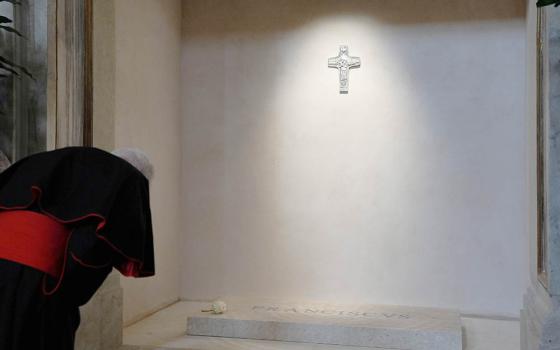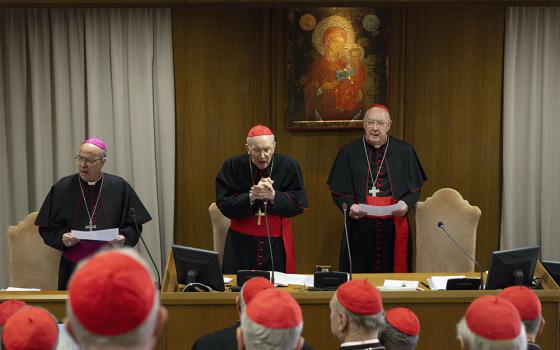California's bishops expressed disappointment with Gov. Jerry Brown's Monday signing of a measure legalizing physician-assisted suicide in the state, saying the law "stands in direct contradiction to providing compassionate, quality care for those facing a terminal illness."
"This bill does nothing to validate the lives of the vulnerable," said the California Catholic Conference, the public policy arm of the state's bishops, in a statement soon after Brown's action.
The conference added that the legislation "isn't compassion" and does not support or promote the common good.
"As Catholic bishops in California, we join hands with the disability rights groups, physicians, other health care professionals and advocates for the elderly in opposing physician-assisted suicide as the wrong way to advance the human dignity for those facing a terminal illness," the conference said.
The prelates also pointed out that the 48 Catholic hospitals in California "provide excellent palliative care services as all medical facilities for terminally ill patients should but often do not."
In a message the governor wrote to members of the California Assembly after signing the measure into law, he said he carefully read the "thoughtful opposition materials presented by a number of doctors, religious leaders and those who champion disability rights."
Brown, who is Catholic, also said he considered the theological and religious perspectives about the "deliberate shortening of one's life" and he read the letters and "heartfelt pleas" of those who support the bill. He said he discussed the issue with a Catholic bishop, his own doctors, former classmates and friends who "take varied, contradictory and nuanced positions."
"In the end, I was left to reflect on what I would want in the face of my own death," Brown wrote. "I do not know what I would do if I were dying in prolonged and excruciating pain. I am certain, however, that it would be a comfort to be able to consider the options afforded by this bill. And I wouldn't deny that right to others."
"This is a dark day for California and for the Brown legacy," Californians Against Assisted Suicide said. "Gov. Brown was clear in his statement that this was based on his personal background. As someone of wealth and access to the world's best medical care and doctors the governor's background is very different than that of millions of Californians living in health-care poverty without that same access -- these are the people and families potentially hurt by giving doctors the power to prescribe lethal overdoses to patients."
The coalition against the bill said it "is reviewing at all of its options."
The California Catholic Conference said it was proud to work with Californians Against Assisted Suicide and its partners from the disability rights community, advocates for the elderly, physicians' groups and other health care professionals during the debate on this measure, and said the bishops would "continue to stand with them in efforts to protect the most vulnerable Californians."
The conference stressed that the legislation will "adversely affect the poor, as those with resources will always have access to palliative care."
It also said the legislation places the elderly and disabled in "great peril" noting that "the option to offer the low-cost alternative of lethal drugs instead of proper medical care is a temptation not long resisted."
The legislation requires that a patient with a terminal disease must be physically capable of taking medication that would end his or her life. It says that a patient must submit written requests for the medication, that two doctors must approve the request and that there must be two witnesses.
Other states with laws permitting physician-assisted suicide are Oregon, Washington, Montana and Vermont.


